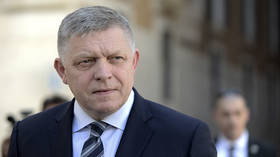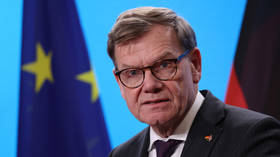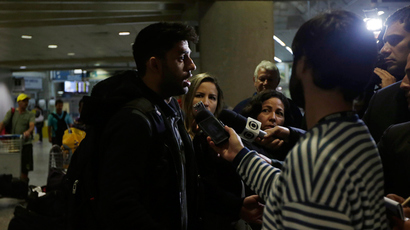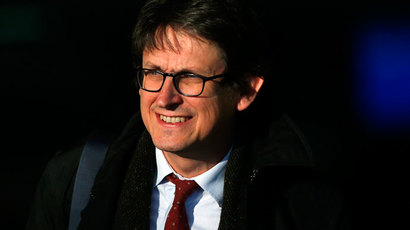British response to surveillance leaks 'eroding' freedom – human rights groups
The UK government’s response to revelations of mass surveillance leaked by Edward Snowden is leading to the erosion of fundamental rights and freedoms in Britain, said a letter sent to PM David Cameron on behalf of global human rights organizations.
Seventy human rights organizations from 40 different countries came together to write the letter to Cameron, stating their concern with the British reaction to revelations of mass surveillance - including increased pressure on media outlets reporting on the leaks and the closure of public interest debates dealing with the subject.
"We have joined together as an international coalition because we believe that the United Kingdom government's response to the revelations of mass surveillance of digital communications is eroding fundamental human rights in the country," the open letter stated. "The government's response has been to condemn, rather than celebrate investigative journalism, which plays a crucial role in a healthy democratic society."
About five months ago, the Guardian, The New York Times, The Washington Post, and other media outlets began covering the extent of global surveillance by the National Security Agency (NSA) and its British counterpart UK Government Communications Headquarters (GCHQ).
The news led to a worldwide debate over privacy, with Germany and Brazil even submitting a new draft resolution to the UN General Assembly which calls for an end to excessive electronic surveillance, data collection, and other snooping techniques.
The letter argues that the UK’s reaction has damaged freedom of expression in the country.
"The UK has a strong history of democracy, and while targeted
surveillance may play an important role in protecting national
security, in doing so it should not erode the very values it
seeks to protect. We call on you to honour the UK's international
obligations to defend and protect the right to freedom of
expression and media freedom, and to end the UK government's
pressure on the Guardian and those who assist them,” the
letter said.
The letter was signed by organizations such as Liberty, Privacy International, and Reporters Without Borders.
It focuses on the detainment of David Miranda - the partner of the former Guardian journalist Glenn Greenwald, who was one of the first reporters to break the NSA surveillance story.

"Edward Snowden, David Miranda, Glenn Greenwald and the Guardian are being painted as the villains of this piece. They are being targeted for raising a matter of serious public interest. This seems to be a convenient distraction from what might otherwise be a story about state overreach and inadequate oversight of power,” it added.
The full text of the letter can be found here.
In October, Cameron accused the Guardian of damaging national security by publishing sensitive data provided by the former NSA contractor. “The plain fact is that what has happened has damaged national security,” the PM said.
Just hours later, it was announced that Britain is set to launch a parliamentary investigation into the newspaper’s reporting of the leaks as part a broad counter-terrorism inquiry.
The Guardian revealed in August that experts from Britain's electronic intelligence agency GCHQ had supervised on July 20 the destruction of all electronic devices which had Snowden material saved on them. Alan Rusbridger, editor-in-chief of the Guardian, said that prior to that “a man from Whitehall” confirmed to him that if the materials were not handed over or destroyed, “the government would move to close down the Guardian's reporting through a legal route – by going to court to force the surrender of the material.”
The British newspaper granted The New York Times access to some of the classified NSA documents in an effort to resist pressure from UK authorities who demanded the information be destroyed.
Snowden handed over thousands of intelligence documents to the Guardian in May that revealed a vast internet surveillance program carried out by the NSA and GCHQ.













